
In India, the Constitution provides the fundamental right of freedom of speech and expression, but makes that right subject to certain “reasonable restrictions” in relation to, inter alia, contempt of court.
The history of the contempt jurisdiction of courts emanates, in the common law system, from the doctrine of “inherent powers” of the courts. The Contempt of Courts Act of 1921 and the subsequent Act of 1952 did not make any attempt to define what constituted “contempt of court”. It was left to the courts to decide on the basis of common law doctrine of “inherent powers” and judicial precedent, as to what constituted “contempt” and the extent of punishment.
The problem with such an unfettered “inherent” right to punish for acts perceived as contempt is best illustrated in the recent movie The Trial of the Chicago Seven—based on real events— where the defendants’ lawyer was sentenced to four years in prison for repeatedly referring to the judge as Mr Hoffman, instead of “Your Honour”.
This story is from the {{IssueName}} edition of {{MagazineName}}.
Start your 7-day Magzter GOLD free trial to access thousands of curated premium stories, and 9,000+ magazines and newspapers.
Already a subscriber ? Sign In
This story is from the {{IssueName}} edition of {{MagazineName}}.
Start your 7-day Magzter GOLD free trial to access thousands of curated premium stories, and 9,000+ magazines and newspapers.
Already a subscriber? Sign In
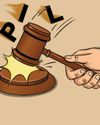
PIL, Difficult To Swallow?
In a recent ruling, the Bombay High Court lamented the increasing number of frivolous public interest litigations being filed in courts and echoed the sentiments of the Supreme Court that such litigations are the bane of the judicial system. Is there any way to restrict their misuse?
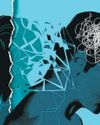
Till Infertility Do Us Part...
The Calcutta High Court slammed a husband for initiating divorce proceedings due to his wife's infertility and asked him to be a pillar of support for her. Courts have often taken an empathetic view in such matters
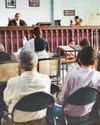
IS THAT LEGAL?
Ignorance of law is no excuse. Here are answers to frequently asked queries regarding matters that affect us on a day-to-day basis

The Big Lie
In America, The Big Lie is an idiom used by Donald Trump's opponents and the media to describe his constant gripe about election fraud. Now, it seems more suited to another Republican, Congressman George Santos (right), who has been facing growing calls to resign after he admitted fabricating parts of his resume and biography since his election in New York last year.

Flying into the Sunset
Over 50 years since the first and original jumbo jet, the Boeing 747, took to the skies and revolutionized air travel, the last of the legendary aircraft (right) was delivered to a freight charter company, bringing down the curtain on one of aviation's most successful products.

Star Crossed
Actor and producer Alec Baldwin is a Hollywood legend, having starred in a range of movies, award winning TV sitcoms, and theatre. He was most recently seen in Mission Impossible Fallout, which is an apt description of his current situation.
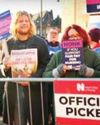
Walkouts in the UK
An estimated half a million workers have gone on strike, shutting down thousands of schools, public transport and border disruption. It is the biggest day of industrial action for more than a decade.

Myanmar's Misery
Two years after the military coup ousted the elected government led by Aung San Suu Kyi, the brutal crackdown by the junta on so-called \"insurgents\" and civilian protesters has reached a new level with the use of air strikes, a new and deadly tactic in the ongoing civil war.

AMERICA'S ANGST
From messy, divisive politics to a series of mass shootings, and now black officers brutally beating another black man to death as seen in bodycam videos, America's domestic convulsions are cause for serious introspection
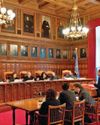
JUSTICE LEAGUE
There are few judicial appointment procedures in the world that are completely bereft of the overarching presence of either the executive or the legislature, or both. In the end, the judge is left with all the powers vested in him/her by the constitution to uphold the rule of law, within an atmosphere of external influences